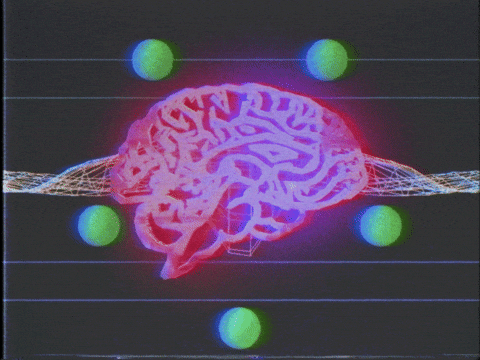The Science of Orgasms: What Actually Happens in Your Brain 🧠✨

Orgasms: They’re powerful, euphoric, sometimes elusive, and always fascinating. Our question is, what’s really going on in our brains when we climax? It turns out, that a full-on neurological symphony is at play. Your hormones, neurotransmitters, and pleasure centers are all working in perfect harmony. Ready for a deep dive into the chemistry of climax? Let’s go!
Your Brain on Orgasms
The moment arousal kicks in, your brain starts lighting up like a neon sign. The limbic system, which controls emotions and motivation, takes the wheel. Specifically, the hypothalamus (your body’s command center) and amygdala (which processes emotions) play leading roles in intensifying pleasure.
When orgasm is near, the dopaminergic system floods your brain with dopamine, the feel-good neurotransmitter that reinforces pleasure and reward. According to Dr. Nan Wise, a neuroscientist and sex therapist, fMRI scans show that the prefrontal cortex, responsible for self-control, actually dials down during orgasm. This means that in those few blissful seconds, you’re literally losing your mind in the best way possible. Meanwhile, the periaqueductal gray (PAG), a region responsible for pain relief, lights up. This explains why orgasms can temporarily reduce pain. (Wise, 2020)
The Hormonal Cocktail: Dopamine, Oxytocin, and Serotonin
Once you reach orgasm, a wave of oxytocin (aka the “love hormone”) is released. This hormone enhances bonding and relaxation, which explains why post-orgasm cuddles feel so damn good. Meanwhile, prolactin kicks in, reducing arousal and creating that post-climax satisfaction.
Your brain also dishes out endorphins, nature’s painkillers, which contribute to that warm, sleepy afterglow. Dr. Emily Nagoski, author of Come As You Are, explains that this hormonal mix not only deepens intimacy but also helps regulate stress. (Nagoski, 2015)
But here’s the catch: not everyone experiences post-orgasm sleepiness. Studies suggest this effect is more pronounced in people with penises due to their unique hormonal response, while others may feel re-energized. (ScienceAlert, 2024)

Brain vs. Body: Why Mental Stimulation Matters
Contrary to the old “men are visual, women are emotional” trope, the reality is that arousal is deeply psychological for everyone. Neuroscientist Dr. Barry Komisaruk’s studies have shown that mental stimulation alone can activate the same brain regions as physical touch, proving that desire is as much about the mind as it is about the body.
Some studies also suggest that people with vulvas experience broader brain activation during orgasm, particularly in regions tied to memory and emotion. Meanwhile, people with penises show increased activity in the cerebellum, which coordinates movement and muscle contractions.
So, next time you're in the mood, remember: it’s not just your body doing the work, your brain is putting in some serious overtime. (Komisaruk, 2011)
How to Work With Your Brain for Better Orgasms
Your brain loves predictability but it also craves novelty. This means experimenting with new sensations, environments, or even just slowing down and tuning into your body can enhance pleasure. You can try this:
● Sensory mapping: Take time to explore different types of touch and see how your body responds. Pay attention to what really gets you going.
● Mindful arousal: Instead of rushing to the finish line, stay present and notice the build-up. It can make the climax even stronger!
● Communication is key: Our brains thrive on connection. Talking about what feels good (or doesn’t) with your partner (or partners) can make all the difference.z

At the end of the day, orgasms are more than just a moment of pleasure! They are a full-brain, full-body experience that connects you to yourself and others in ways science is STILL trying to unravel. So stay curious and enjoy the magic happening inside that brilliant being of yours.
Looking for more orgasmic insights? Follow us on Instagram or check more on our blog for never-ending sex-positive, pleasure-focused content. 😉
References
- Wise, N. (2020). Why Good Sex Matters: Understanding the Neuroscience of Pleasure for a Smarter, Happier, and More Purpose-Filled Life.
- Nagoski, E. (2015). Come As You Are: The Surprising New Science That Will Transform Your Sex Life.
- Komisaruk, B., Beyer-Flores, C., & Whipple, B. (2011). The Science of Orgasm.
- Perel, E. (2017). The State of Affairs: Rethinking Infidelity (for more on desire, intimacy, and eroticism).
- Masters, W. H., & Johnson, V. E. (1966). Human Sexual Response (the OG research on sexual function).
- ScienceAlert (2024). Here’s What Happens to Your Brain When You Orgasm.



